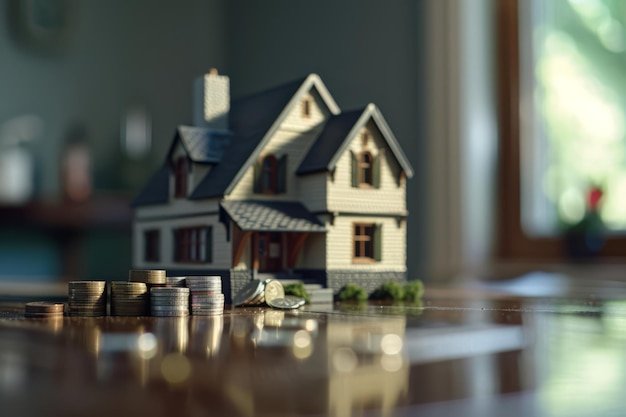
I never imagined I’d buy a property outright with cash, but here I am, on my second one. Right out of college, I had saved $25,000 thanks to numerous student jobs and low tuition costs in France. I wanted to use that money to buy a flat. However, my work contract was ending with the company that financed my master’s degree, and I planned to travel for a year. Naturally, the bank wasn’t keen on giving me a loan under those circumstances.
So, I set out to see what I could buy with my $25K savings. Real estate near Paris was way out of my budget, but I found a 20sqm studio flat in one of the country’s worst neighborhoods, around 15 miles from the city center. I didn’t do enough research and was too eager for passive income, so I trusted the realtor’s advice.
The realtor claimed the neighborhood had hit rock bottom and was filled with illegal migrants, but assured me it would improve in 3-5 years due to public funding. Meanwhile, I could expect a nearly 10% rental return, which was impressive compared to Paris.
I went for it. If I had done thorough homework, I would have discovered that both the local council and the homeowners’ association were burdened with debt, leading to high local taxes and condo fees. This was essentially to cover interest on their debts.
Despite my concerns, I traveled anyway. For 10 years, the property was professionally managed, so I didn’t worry about it much. I even had insurance to cover the rent, which came in handy. My tenant was often late on payments, then passed away, and his widow squatted for a while until the police evicted her in March 2012.
But let’s stay on track. Not having a mortgage gave me peace of mind during those 10 years. The rent covered the condo fees, and anything extra was mine. There was no financial pressure or worries about tenants leaving. I rarely even checked the statements the rental agency sent; I just waited for my quarterly money transfer.
After the eviction, I spent a stressful six months looking for a buyer but eventually sold the place by the end of 2012. The proceeds allowed me to buy a home in Guatemala with cash. For the first time, I fully owned my home, which brings a lot of benefits.
Without a mortgage, all the money I would have paid in rent can go into repairs and improvements, making the place truly mine. I sleep better knowing that even if I go broke, I have a home and some land to grow food since the property includes 90 acres.
If needed, I could take a loan against my home in a financial emergency, though I hope I never have to. I won’t take a loan to buy a new car or incur consumer debt. My money is invested in an appreciating asset, and I can withdraw from it if necessary. Mortgage rates here range from 9-12%, which is a healthy return on investment.
I can rent out my home without needing my mortgage provider’s approval or facing a rate change to a buy-to-let mortgage. Plus, I can proudly say I own a piece of the world.
Despite the high current expenses for improvements, the basic survival budget is very low. We could live frugally on $250 each month without luxuries.
This financial security brightens my future. Knowing I have a safety net makes me more willing to take risks, start a business, and invest. Although my home isn’t as liquid as a cash emergency fund, many people with emergency funds still pay mortgages, so it balances out.
Honestly, the best mortgage option is having none.
Are there any other benefits to not having a mortgage?